Welcome to the February 2017 issue of the Global Washington newsletter.
IN THIS ISSUE
- Letter from our Executive Director
- Question of the Month
- Issue Brief: Women’s Economic Empowerment; The Key to a Sustainable World
- Featured Organization: Agros International
- Changemaker: Tzili Mor, Director of Landesa Center for Women’s Land Rights
- Welcome New Members
- GlobalWA Member Events
- Career Center
- GlobalWA Events
Letter from our Executive Director
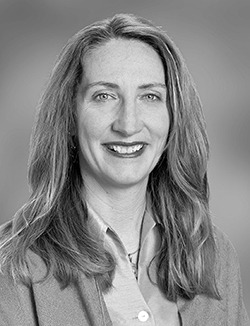
On March 8, 2017 the world will celebrate International Women’s Day. Leading up to this annual event, Global Washington will focus on various efforts to empower women in developing countries, and in particular, the economic empowerment of women.
Increasing income for women in developing countries is a catalyst for long-term economic development. Research shows that when women increase their earnings, they invest in their children’s education and health. Women entering the formal economy can also lead to review and improvements of legal frameworks and financial regulations.
Learn more about economic empowerment of women and GlobalWA members working to improve the lives of women around the world in this GlobalWA issue brief. And, join the conversation on March 1 at our panel event addressing women’s rights and economic opportunities.
Gender-focused development and other issues were addressed at the 2016 GlobalWA Conference last December. You can read about it in our conference report here and watch the videos from our plenary, and save the date for the 2017 Global Washington Conference on November 29th!
In addition to our monthly issue campaign, GlobalWA is hosting a workshop on February 15 about effective digital communications. I hope to see you at one of our upcoming events!

Kristen Dailey
Executive Director
Question of the Month
![]() Have you filled out the Global Washington annual survey, yet?
Have you filled out the Global Washington annual survey, yet?
Issue Brief
Women’s Economic Empowerment; The Key to a Sustainable World
By Amanda Pain
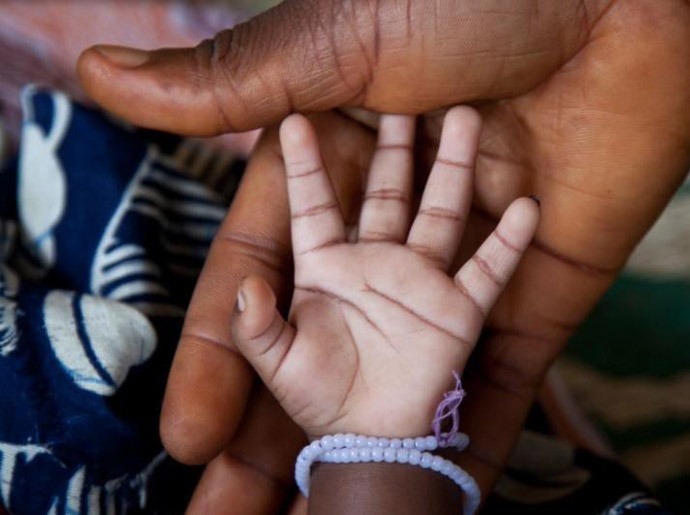
In 1970 economist Ester Boserup published Women’s Role in Economic Development, where she explained that women were being systematically left out of the development agenda, which in turn harmed the global economy because women are crucial to economic growth. Almost 50 years later, ending gender inequality and empowering all women and girls, is still crucial to development and is an important focus of the Sustainable Development Goals (SDGs).
While SDG5 outlines a number of goals to achieve gender equality, one issue at the forefront of achieving many SDGs is women’s economic empowerment: defined as women’s capacity to participate in, contribute to and benefit from growth processes in ways which recognize the value of their contributions, respect their dignity and make it possible to negotiate a fairer distribution of the benefits of growth. According to the Organization for Economic Co-operation and Development (OECD) investment in gender equality produces the highest returns compared to all other development spending. Higher female earnings translate into higher investments in children’s education, health and nutrition; and when more women work economies grow.
So why aren’t women economically empowered? In countries all over the world constraints such as adverse social norms, discriminatory laws and lack of legal protection, failure to recognize, reduce and redistribute unpaid household work and care, and a lack of access to financial, digital and property assets have held women back from economic growth, which in turn have held back the world.
Unequal opportunities in employment and wages are a major economic constraint for women. According to the United Nations (UN) Women, 700 million fewer women of working age had paid employment compared to men in 2016. Women remain half as likely as men to have full-time employment and often earn up to one-third less than men, in part due to occupational sex segregation. Women are also likely to take on three times as much unpaid domestic work and care activities, and contribute nearly 58 percent of unpaid work to family enterprises and farms. According to the McKinsey Global Institute, the value of unpaid care work performed by women is $10 trillion, or 13 percent of the global gross domestic product (GDP). If the employment participation gap and the wage gap between women and men were closed women could increase their income globally by 76 percent, which is calculated to have a global value of $17 trillion.
Another constraint to women is a lack of financial inclusion; which means that formal financial services such as bank accounts, loans and insurance, are not readily available to them. Women around the globe have less access to formal financial institutions as compared to men and are less likely to have a bank account. In addition the credit gap for women-owned businesses is estimated at $300 billion globally. According to the World Bank, which aims for universal financial access by 2020, most of the 2 billion people worldwide who lack a bank account are women. This lack of financial inclusion continues to promote gender inequality and reinforce women’s economic subordination.
Women are kept from financial institutions because of sexist laws, and/or misogynistic social norms. Legal barriers constrain women’s economic development in several ways. Not only do countries have laws that prevent women from opening a bank account, but according to the World Bank 155 of the 173 economies surveyed globally had at least one law blocking women’s economic opportunities. In 100 of those economies women faced gender-based job restrictions, in 46 economies women have no legal protection from domestic violence and in 18 economies husbands can forbid their wives from working.
Globally women make up 43 percent of the agriculture workforce, however, in many countries there are laws that prohibit women from owning land; in fact less than 20 percent of landowners are women. Women also have limited access to the resources and services they need for farming such as, fertilizers and seeds, education and extension services and livestock. If women had the same access to these resources, according to the Food and Agriculture Organization (FAO), they could increase their yield by 20 to 30 percent, raise total agricultural output in developing countries by 2.5 to 4 percent and reduce the number of starving people by 100 to 150 million.
If gender inequality as a moral imperative is not enough to convince the world that women’s economic empowerment is important, there is mounting evidence that it benefits everyone. When women have access to the same economic opportunities as men, and the legal protections in place to ensure those opportunities they will: devote more of their household budget to their children’s education, save more money overall, have children that are less likely to become sick or be undernourished as well as grow the overall global economy.
The good news is the development world understands this, and has made women’s economic empowerment a major focus of the SDGs. Additionally, the UN Secretary-General established the High-Level Panel on Women’s Economic Empowerment in January 2016 to provide concrete guidance to governments, the private and public sectors and civil society to implement change. Women’s economic empowerment is the pre-requisite for sustainable development, ending poverty and achieving a better world by 2030.
A number of Global Washington members work tirelessly to improve the lives of women, allowing them to look toward a brighter future for themselves and their families. Below are descriptions of just a few of these organizations, highlighting current projects. Learn more about these members and others on GlobalWA’s interactive map.
Agros: The mission of Agros is to see rural poor families own agricultural land, attain economic self-sufficiency, realize their God-given potential, and pass on to future generations the values and resources that enable them to flourish. A critical driver of successful rural development is ensuring equal access to opportunities and resources for women, and that they are full partners in the community development process, ensuring that women occupy positions of community leadership. agros.org
Awamaki: Awamaki partners with women’s artisan cooperatives to create economic opportunities and improve well-being. The women knit, weave and host tourists in the rural Peruvian Andes. The organization helps them start and run successful cooperative businesses so they can earn income and lead their communities out of poverty. awamaki.org
Health & Hope Foundation: Health & Hope Foundation delivers dental, vision, and medical care, via portable clinics, to communities lacking healthcare access. Needs for education, light, water, sustainable businesses, and sexual safety are addressed within our programs and partnerships with specialized NGOs. Our focus is impoverished women and children of Tanzania and the Philippines. healthandhopefoundation.org
Landesa: For nearly four decades, Landesa has worked in over 50 countries to help secure land rights for more than 120 million of the world’s poorest families. In 2016, 8.1 million women and men gained more secure rights to their own plot of land as a result of Landesa’s work. Given the centrality of women’s land rights to a host of development and human rights outcomes, the Landesa Center for Women’s Land Rights works to prioritize and integrate a gender lens in all of Landesa’s projects and initiatives. The Center also develops and implements innovative pilot projects to strengthen women’s rights to land www.landesa.org
Mona Foundation: Since 1999, Mona Foundation has partnered with 32 grassroots projects in 16 countries assisting tens of thousands of marginalized children to receive a quality education and to raise the status of women and girls. In 2015, Mona supported 13 projects in 8 countries serving 150,000 children and their families in Mongolia, the Brazilian Amazon, India, Haiti, Panama, China, Vietnam and the U.S. Mona also seeks to collaborate with other organizations to share learning, participating in committees and fora such as the Brookings Institution’s annual CHARGE strategy meeting on the education of girls and Boston Foundation’s annual Haiti Funders’ Conference among others. monafoundation.org
Partners Asia: Partners Asia supports emerging leaders and community-led initiatives which improve the lives of the most vulnerable people of Southeast Asia. Partners Asia improves women’s access to the legal system by supporting lawyers who will defend women in court — and ultimately help change legal procedures and laws. The organization also supports the establishment of women’s savings groups to support one another and build community. partnersasia.org
Thriive: Thriive’s mission is building shared prosperity in vulnerable global communities. The organization does this by making pay-it-forward loans to small businesses so they can grow and create jobs. 51% of Thriive businesses are owned by women who became more successful, created jobs for other women, and helped strengthen their communities with pay it forward donations of products or job training. thriive.org
Women’s Enterprises International: Women’s Enterprises International reaches across cultures to transform lives and communities by partnering with women’s groups; empowering and equipping women to break the cycle of poverty and live into their God-given potential. WEi is a Seattle-based nonprofit, dedicated to creating opportunities that equip women in Kenya and Indonesia to overcome poverty and transform their lives and communities for over 16 years. womensenterprises.org
Featured Organization
Agros International
By Amanda Pain
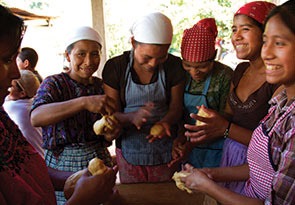
Photo: Agros
Today 10.7 percent of the global population lives in extreme poverty. While this percentage has fallen since 1990 it has not fallen equitably with many of the world’s poor being women due to gender inequality and lack of economic opportunities. Agros International, a non-profit based in Seattle, has been working for 33 years to help the most vulnerable people find a path to prosperity, and are part of a global push to empower women.
Founded in 1984 by Chi-Dooh “Skip” Li, Agros International’s mission is to see rural poor families own agricultural land, attain economic self-sufficiency, realize their God-given potential and pass on to the future generations the values and resources that enable them to flourish. What started with building one village in Guatemala has become an established program working in 43 communities across Central America, and has helped more than 10,000 individuals escape extreme poverty.
While Agros’s work is focused in Central America (an area chosen by Li due to its devastating civil wars in the late 1970s) Lisa Fernández, communications manager at Agros International, explained Agros’s community development model could be successfully exported anywhere. Agros’s model started with land ownership, and according to Fernández evolved over the years to concentrate on five areas: land, market-led agriculture, health and well-being, financial empowerment and education.
Agros International works like this, families approach Agros at one of its in-country offices and apply for the program. Agros, after extensive research purchases a sizable parcel of land that is then divided among families accepted into the program. Each family is given an initial loan with their land, and over time, typically in seven to ten years, pays off the loan and in turn owns their plot of land. One thing that is key to Agros’s program is that the names of both the man and woman, whether they are married or not, go on the title to the land once the loan is repaid. This, Fernández said, is non-negotiable for anyone who applies.
“Historically only men have been named on land titles in Central America,” Fernández said. “One of the key principles of Agros is equity, so every land title has the man and woman’s name on it. This protects her both legally and financially.”
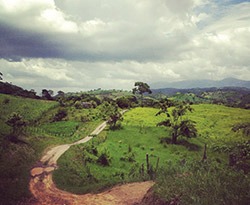
Photo: Agros
Fernández said women play a major leadership role in Agros communities. When Agros decides to build schools in its villages women are instrumental in planning and running these schools. She said women also primarily run the community savings group program, which provides loans to families within the village in times of need. With initial funding from Agros, the savings group is eventually community funded and supported. A lot of women in Agros villages are also interested in starting their own businesses, which is something, Fernández explained, Agros encourages in order to economically empower women and in turn all Agros families.
“These businesses help the family diversify their income and pay off their loans even faster,” Fernández explained. “Women in the community serve as great role models for agribusiness.”
This summer Agros plans to start a new agribusiness program that aims to eliminate the middleman from the food supply chain (i.e., process of harvesting, storing and selling crops), and in turn put more money in the pockets of Agros community members. With families paying off their loans quicker Agros has more opportunity to be flexible in its programming for even more vulnerable populations. Recent ventures into livestock production and tilapia farming are examples of the model accommodating different needs. With additional funding from their agribusiness Agros hopes to increase the number of loans made to women and their families and help them move along the path to prosperity.
“The Agros development model recognizes the vast roles women play in a family and community so it’s important that we provide alternative farming opportunities that are not as labor intensive as cultivating acres of land, yet still allow for say a single mother or elderly member to be an active, productive worker in the community,” Fernández said.
Ending poverty and gender inequality by 2030 are two of six Sustainable Development Goals that Agros International has in common with the United Nations. In an Agros village, families are empowered to lift themselves out of poverty, and women play a key role in that success.
“Our focus has always been the family,” Fernández said. “The women in our program are the heart and soul of the family; if they are not successful no one is successful. Without the active engagement of women the Agros model would not work.”
Changemaker
Tzili Mor, Director of Landesa Center for Women’s Land Rights
By Amanda Pain
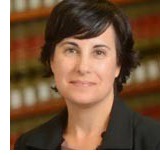 Land is a feminist issue. This is something Tzili Mor, director of Landesa Center for Women’s Land Rights, strongly believes. The issue of land rights was rooted in her during childhood and has continued to grow in importance throughout her personal and professional experiences. To Mor, promoting land rights is promoting women’s rights.
Land is a feminist issue. This is something Tzili Mor, director of Landesa Center for Women’s Land Rights, strongly believes. The issue of land rights was rooted in her during childhood and has continued to grow in importance throughout her personal and professional experiences. To Mor, promoting land rights is promoting women’s rights.
“At Landesa (an international non-governmental organization (NGO) based in Seattle) we call land rights an accelerator of rights for women and girls,” Mor said. “Women’s rights and control over land, especially the land that they till and depend on to survive, carries true potential for empowering women.”
Mor said growing up in the Middle East she witnessed conflict and disputes over land rights being at the root of socio-political crises there, and later saw such disputes fuel struggles around the world. She said this influenced her choices in both work and life, and eventually, it led her to study law and international relations at Georgetown University in Washington D.C.. She saw law as the tool and pathway toward the goals of global and local social justice.
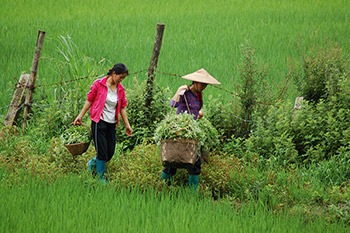 “Law can be powerful, and the understanding of the law and how to use it can be transformative,” Mor said. “We saw that power just last week with legal action against the refugees and immigrant ban.” She was drawn to being a bridge between a complex legal system and those who needed support to access their rights. Mor, who taught law students in the US and abroad, said she enjoyed watching her students realize the core, creative power of law to reinforce human rights and constitutional values.
“Law can be powerful, and the understanding of the law and how to use it can be transformative,” Mor said. “We saw that power just last week with legal action against the refugees and immigrant ban.” She was drawn to being a bridge between a complex legal system and those who needed support to access their rights. Mor, who taught law students in the US and abroad, said she enjoyed watching her students realize the core, creative power of law to reinforce human rights and constitutional values.
At the beginning of Mor’s legal career, she focused on women’s reproductive rights but found herself dealing with issues around women’s access to land. While working in sub-Saharan Africa during the height of the HIV/AIDS pandemic, land and property rights became a serious issue in many rural communities. Mor said when a woman’s husband died from AIDS, she and her children lost all rights to stay in their home. As more men died, and more and more women and children were being dispossessed of their land, local leaders, governments, and NGOs realized something needed to change. She saw that when women were allowed to stay on their land the health and well-being of the family improved. These ripple effects from secure land rights she now knows extend to greater food security, educational gains, health outcomes, greater incentive to conserve the land, plant trees, and give women options out of abusive situations.
“Historically the way wealth was transferred was through marriage and inheritance,” Mor explained. “Often women were excluded from these two axes of power and resource transfer. A lot of the work (Landesa Center for Women’s Land Rights) does now is addressing those historic injustices.”
Mor said collecting data on women’s access to land has been challenging especially because land rights are about more than ownership; they are a bundle of rights that include access to the resources on that land, as well as control over what can be done with it. She said globally on average less than 20 percent of women have secure land rights, but this is something that varies widely from country to country. Based on her legal experience in human and women’s rights, land rights are often at the source of realizing and upholding a number of rights and development needs. This is how she found herself at Landesa; the first non-profit organization solely focused on securing land rights for the world’s poorest people.
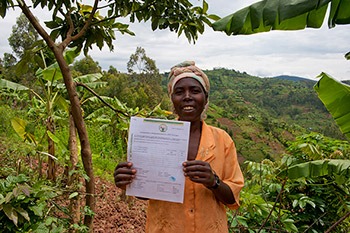
Photo: Deborah Espinosa
Mor, who has worked for organizations like Amnesty International, the American Bar Association Rule of Law Initiative, and consulted for UN Women, enjoys working for Landesa because it provides for agility and space for creativity from a very focused lens. At the Landesa Center for Women’s Land Rights, she leads work to champion and shape standards, policies, and tactics to strengthen women’s land rights, pursues innovative solutions to empowering women, and helps nurture a global network of professionals and organizations collaborating to strengthen women’s rights to land.
“There is increasing global recognition that women’s land rights and economic empowerment are crucial to development success,” Mor said. “Three of the 17 (Sustainable Development Goals) SDGs – on ending poverty, food security and gender equality – explicitly mention women’s rights to land and resources. Gaining rights to land can disrupt the intergenerational cycle of poverty.”
Mor said now more than ever women’s rights are coming under threat, with much of the progress of the past decade being undercut. But however distressed, she remains optimistic.
“Whatever accomplishments I have made in my path, this work is not something you can ever claim an ultimate win on,” Mor said. “Social Justice is not something that can be achieved with one success, no matter how significant. As an organization, and as advocates, we need to continue to focus on the principles that motivate us. Politicians and regimes come and go, but these principles remain and will carry us through.”
Welcome New Members
Please welcome our newest Global Washington members. Take a moment to familiarize yourself with their work and consider opportunities for support and collaboration!
Coopersmith Law + Strategy
Our law and strategic consulting expertise enables us to move efficiently and quickly. As a premier Northwest firm, we have deep roots locally, but have leveraged that knowledge into a powerful team of global experts. Our extensive expertise in both government and business allow us to offer you strategic guidance with global development, including work with multi-lateral organizations, global investment initiatives and business and strategic partnership opportunities. coopersmithlaw.com
Extend the Day
Extend the Day provides inexpensive solar powered reading lights, at no cost, to school children who live without electricity. We use adventure travelers and existing NGO’s as our distribution partners. extendtheday.org
Mavuno
Mavuno is a nonprofit organization that empowers local leaders in eastern Congo to end extreme poverty in their own communities. We organize communities and build businesses at the grassroots level. www.mavuno.org
Member Events
Feb 9: Trade Development Alliance // Disrupting Innovation
Feb 9: Shoreline Community College // Taiwan’s History and Culture
Feb 10: Women’s Enterprises International // Sweetheart Shopping Event
Feb 16: World Affair’s Council // Future of Technology: Issues for Washington and the World
Feb 16: Pangea Giving // Pangea Giving Coffee + Chat
Feb 21: Thriive // Voices from the field
Feb 22- Mar 8: Women’s Enterprises International // Kenya Work Team Trip
Mar 2: Shoreline Community College // Peru’s History, Culture, and Places in the World
Mar 11: World Affairs Council // YPIN International Women’s Day Speed Mentorship
Career Center
Highlighted Positions
Director of Sustainable Investment, SSG
Program Assistant, iLeap
For more jobs and resources, visit https://globalwa.org/job-board/
GlobalWA Events
February 15: Digital Communications: Strategy, Messaging, Methods & Tools
February 23: Networking Happy Hour with Friends of GlobalWA, Humanosphere and World Affairs Council
March 1: Women Rise: Empowering Women through Legal Rights and Economic Opportunity